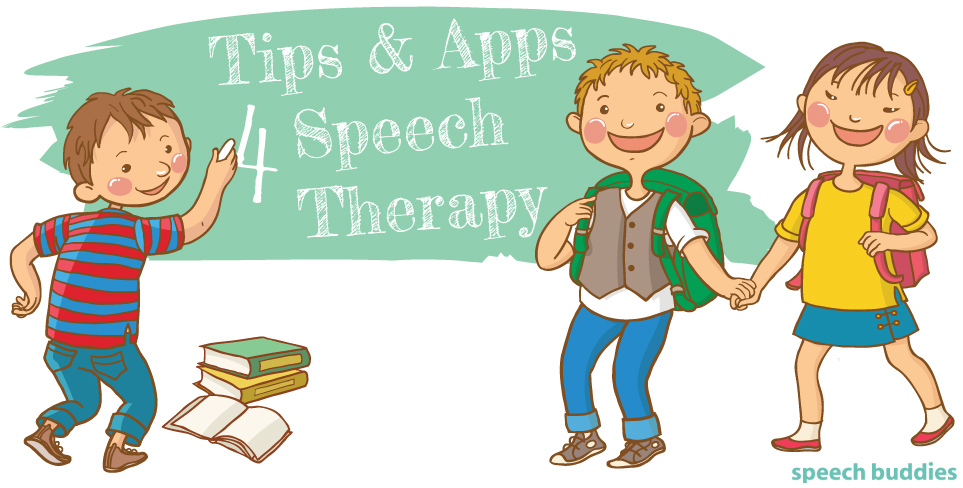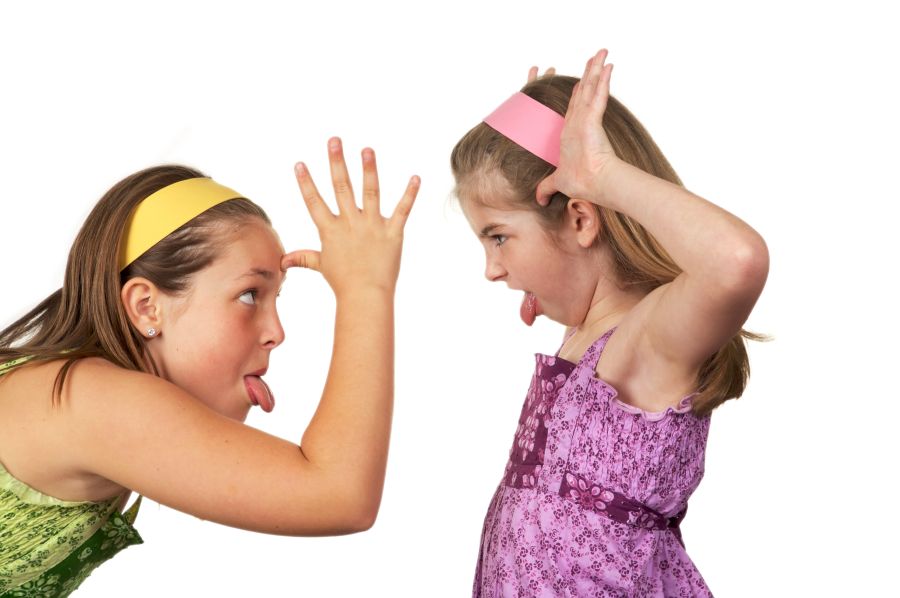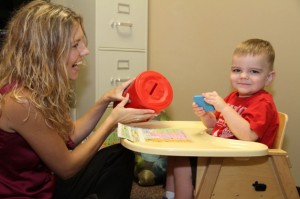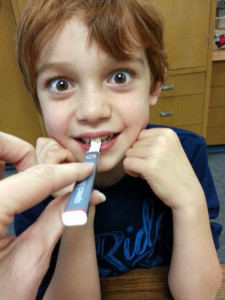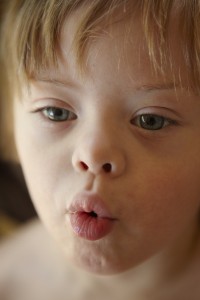From my office in downtown Brooklyn, I can hear the not-entirely-rhythmic jingling of the Salvation Army workers and it got me thinking: this really is a season of charity. Since I and my wife tend to send a donation to a charity whose mission we strongly support, wouldn’t it make sense to share some information about a handful of really great speech and language charities that I have come across in my career? Here are five great speech and language-focused charitable organizations that are changing the lives of the thousands of children they support. They are, in no particular order: Small Steps in Speech, Smile Train, donorschoose.org, the American Speech-Language-Hearing Foundation, and CASANA (Childhood Apraxia of Speech of Association of North America). Each of these charities has a noble mission and a track record of getting your charity dollars to their stated beneficiaries. As you consider who to give a holiday (or otherwise) charitable donation to, keep these charities in mind; they are helping children and adults all over the world improve their capacities to communicate. What better gift is there that the gift of communication?
Tips & Apps to Help with Speech Therapy
Speech Therapist Technology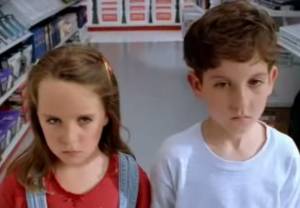 Every September, I can’t help but chuckle at that classic commercial from Staples, the office supply retailer. The father in the spot is jubilant and the kids are anything but. We all experience this to a certain extent; when you work with or have your own children (or both!) summer is a time to chill, to vege, to eschew routine and schedules. It’s healthy, even essential to take a break. I love the work I do, but I do admit to feeling a little like the kids in this commercial. Everything these first couple of weeks can seem a little more challenging: from motivating our kids and getting back into the swing of the school routine, to managing schedule sessions and home-based exercises, to tracking down great new educational games and materials. Here are some tips and apps to help with speech therapy, they’ll make this transition back to school and the “work mentality” a little bit easier for everyone.
Every September, I can’t help but chuckle at that classic commercial from Staples, the office supply retailer. The father in the spot is jubilant and the kids are anything but. We all experience this to a certain extent; when you work with or have your own children (or both!) summer is a time to chill, to vege, to eschew routine and schedules. It’s healthy, even essential to take a break. I love the work I do, but I do admit to feeling a little like the kids in this commercial. Everything these first couple of weeks can seem a little more challenging: from motivating our kids and getting back into the swing of the school routine, to managing schedule sessions and home-based exercises, to tracking down great new educational games and materials. Here are some tips and apps to help with speech therapy, they’ll make this transition back to school and the “work mentality” a little bit easier for everyone.
Speech Delay in Toddlers vs. Late Talkers
Language Development Speech Disorders Speech TherapistHow do you know if your toddler has speech delay? Don’t hit the panic button yet! There’s a chance your child could just be a late talker. A late talker is a toddler between the ages of 18 to 30 months, who is developing normal play, social, thinking and motor skills, but who is limited in spoken vocabulary for their age. Toddlers who are late talkers do not necessarily have speech delay. Most late talkers have difficulty with expressive language. Expressive language is used by toddlers when they are communicating their wants and needs. For example, asking for “milk” is a way that toddlers use expressive language to communicate their desire for a particular drink. Learn more about speech delay in toddlers below.
Animal-Assisted Speech Therapy
Parents' Corner Speech Therapist Speech Therapy Techniques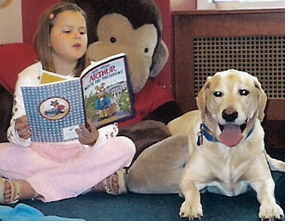
Animals Can Be An Excellent Supplement to Speech Therapy. Image courtesy of www.pawsandthink.org
Shark Week is here! Shark Week is here!! Sure, it’s fun to watch on TV, but what does it have to do with speech and language therapy? Actually, quite a bit. Sure, there is our good friend the Shark Buddy, but what about swimming with dolphins, riding horses or even petting a dog? Animal-assisted therapy has been gaining strength in popularity and recognition as an effective part of a therapy regime for children who have a wide range of social, language and communication disorders.
Continue reading
4 Tips for Managing Difficult Behaviors in Children
Speech Therapist Speech Therapy TechniquesAs SLPs, we have all dealt with our share of difficult behavior. I’ve certainly found myself at a loss for how to approach a client that has trouble with focus, motivation, or simply keeping “in line.” After all, we work with children, so this should be expected to a certain degree. However, challenging behaviors can get in the way of our work, and we must do everything we can to avoid them. When they do occur, we must be prepared with reliable strategies to minimize their negative impact on the session at hand, and ultimately, on our entire therapeutic interaction with that client. The four strategies described below will provide you with a plan for managing difficult child behaviors as they arise, and getting you back on track with your therapy.
Continue reading
What Happens In Speech Therapy?
Language Development Parents' Corner School Speech Disorders Speech Therapist Speech Therapy TechniquesWhat happens when your child visits a speech-language pathologist? What exactly will the SLP do? These are questions that many parents ask when their child has been recommended to start a speech therapy program. In order for you to set your expectations (and your child’s), here are the basics of what to expect from a speech therapy program. Of course, each course of therapy is tailored personally to your child’s particular speech disorder, or speech impairment. This should serve as a general guideline about the entire process.
Will My Child Outgrow His Speech Challenge?
Speech Therapist
Gordy Rogers, M.S. CCC-SLP, Co-founder and Chief Scientific Officer of Speech Buddies.
This week’s post comes to us from our own Gordy Rogers, M.S. CCC-SLP, co-founder and Chief Scientific Officer of Speech Buddies, Inc., the makers of Speech Buddies Tools, as well as the owner of Brooklyn Speech Solutions, PLLC, a private practice in Brooklyn, New York.
Will my child outgrow his speech challenge? This question not only nags at all parents who are faced with addressing a child’s speech challenge, but is one that speech-language pathologists (SLPs) must seriously consider before beginning treatment. This post aims to shed some light on this often murky question and to arm parents with better information so that they may be more informed partners in the treatment decision-making process.
What is Your Speech Buddy Personality?
Parents' Corner Speech Therapist
Which Avenger are you? What Frozen character most resembles your personality? Are you Anna or Elsa? Do these games sound familiar? Seems like everywhere we turn on social media lately, there are games that compare our personality to a famous character. So, in that vein, we thought of doing the same at Speech Buddies. What Speech Buddy personality are you? Rabbit Buddy, Seal Buddy? Speech Buddies has five Buddies specifically designed for your child’s articulation disorder. Who are these five Buddies and which one is the fit for you?
Developmental Apraxia of Speech – An In Depth Look
Articulation Disorders Language Development News Parents' Corner Speech delay Speech Disorders Speech Therapist Speech Therapy TechniquesA is for Apraxia. On Monday, we took at look at Apraxia of Speech in children. Specifically, we outlined the types of apraxia of speech and related symptoms. The most common type of apraxia of speech in children is developmental, which means it is a neurologically based speech disorder. While some children with Developmental Apraxia of Speech (DAS) had specific prenatal or birth injuries, for the most part, there is no specific cause of DAS. This month, we will plan to take a look into the subject of Apraxia of Speech in children in more depth.
Apraxia of Speech in Children – What You Need to Know
Language Development News Parents' Corner School Speech delay Speech Disorders Speech Therapist Speech Therapy TechniquesWhat is Apraxia of Speech in Children? With apraxia of speech, a person finds it difficult or impossible to move his or her mouth and tongue to speak. This happens, even though the person has the desire to speak and the mouth and tongue muscles are physically able to form words. Childhood apraxia of speech (CAS) is a motor speech disorder, where the child has a problem saying sounds, syllables and words. She knows what she wants to say, but her brain has difficulty coordinating the muscle movements necessary to say those words.


